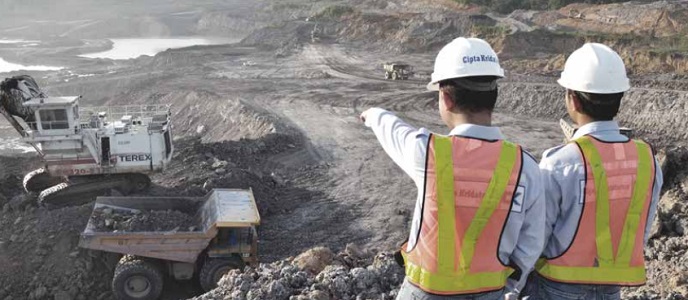New Mining Law Indonesia: Full Mineral Ore Export Ban Delayed Again?
By September 2016 the Indonesian government plans to have revised regulations regarding exports of mineral ore, part of Law No. 4/2009 on Mineral and Coal Mining (New Mining Law). Per January 2014 mineral ore exports from Indonesia should have been banned altogether as the government aims to boost domestic smelter development and reduce the country's dependence on raw material exports. However, a last-minute regulation, signed in January 2014, softened this ban and allowed exports of copper, manganese, zinc, lead, and iron ore concentrates until 2017. Now the government may decide for a two-year delay up to 2019.
This last-minute regulation in January 2014 was signed (by former Indonesian President Susilo Bambang Yudhoyono) as Indonesia lacked a sufficient amount of processing facilities, implying earnings from the mining sector would plunge severely (which would also mean the government misses out on much-needed tax revenue) if the ban would be implemented in full force. In return, miners who resumed mineral ore exports after January 2014 became subject to a high and progressive export tax, higher royalty obligations, while they also need to show evidence of their commitment to build domestic processing facilities. Then, in 2017 the full ban on mineral ore exports would be put in place. This three-year delay would give miners time and additional export earnings to build smelters.

However, progress with smelter development in Indonesia was disappointing over the past couple of years. This was partly the result of weak commodity prices across the globe but also because part of the mining community was reluctant to establish processing facilities as they regarded these mining regulations yet another flip-flop policy issued by the Indonesian government (the New Mining Law was highly controversial from the start as it conflicted with existing mining contracts).
The ban has a major influence on the performance of Indonesia's mining sector. Before the ban was (partially) implemented, Indonesia's mining sector accounted for nearly 6 percent of the country's gross domestic product (GDP). However, this figure has fallen to around 4 percent of GDP (obviously also a consequence of persistently weakening commodity prices since 2011).
For example, nickel prices have been touching their lowest levels since 2003. This has been the key reason why 32 smelter projects - mostly nickel smelters - in Indonesia have been delayed or canceled. Last year, 12 nickel smelters projects should have been completed. However, only five came online. If miners are allowed to resume ore and bauxite exports, then they can generate funds to complete (or start) construction of the smelters. However, there is also the risk that global nickel prices will be plagued by additional downward pressures if the Indonesian government allows nickel ore shipments.
A parliamentary commission will now discuss possible revisions to the New Mining Law, particularly regarding the mineral ore export ban. It is assumed that the government will decide to postpone the full implementation of the export ban again, perhaps by two years (up to 2019)
